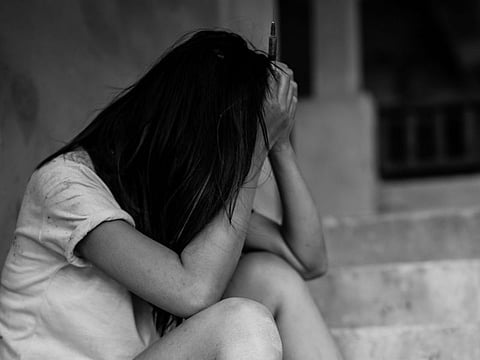‘It wasn’t separation, it was survival’: UAE woman’s fight against addiction at home
When she finally filed for divorce, she told herself it wasn’t an act of hostility

Dubai: For four years, she lived in silence. Each day brought a new shade of fear, each night a deeper worry that the man she had married, the father of her children, was slipping further away.
When she finally filed for divorce, she told herself it wasn’t an act of hostility. “It wasn’t separation,” she said. “It was survival.”
The Emirati mother, who spoke on condition of anonymity to Al Emarat Al Youm, recalled that life before addiction was serene.
“I was living more than a wonderful life in a house full of contentment and peace, with a kind and affectionate husband,” she said. Then, almost without warning, he began missing work, snapping in anger at trivial matters, and retreating into silence with sharp rebukes: Don’t talk to me. Don’t argue with me.
At first, she assumed stress or financial strain. She offered to sell her gold to help. But the money vanished and his behavior worsened. “The signs became impossible to ignore, his moods, his face, the way he distanced himself,” she said. When she confronted him, she offered to stand by him if it was addiction. He denied everything.
What followed was a spiral. Violence, first verbal, then physical, entered the home. Fear replaced safety. One night he disappeared.
When he returned late, wearing only his underclothes, his body bruised and covered with sand, laughing hysterically, she knew this was no financial crisis. His father confronted him: You’re using drugs. He denied it, but narcotics were later found in his car.
From there, the unraveling accelerated. He experimented with cannabis, pills, injections, each time losing more control. Sometimes he slept on the street, other times on the beach, forgetting where he had left his car. Eventually he lost his job. She sold her jewelry, her car, borrowed from her siblings, and took on work to keep the household afloat.
She did not surrender easily. She sought help from treatment centres, enlisted their daughter to plead with him, but each attempt was rebuffed. “I never saw him as an enemy,” she said. “I saw him as a patient who needed a hand. But his hand was clenched around the syringe.”
The house became a battlefield. She hid her children during his rages, sometimes locking them in the bathroom for hours. The breaking point came when her daughter confided: Daddy puts a pill in his juice and it makes him strong. That, she said, was when silence stopped being an option.
Her decision to divorce was not, she insists, about abandoning him. It was the only way to protect her children. “Addiction is an illness,” she said. “Some recover. But he closed every door. Firmness became a duty.”
Thirteen years on, the scars remain. One daughter still undergoes therapy. The mother’s message now is directed to other wives enduring similar turmoil: “Try every path to treatment, but do not let the children pay the price of addiction.”
Sign up for the Daily Briefing
Get the latest news and updates straight to your inbox





